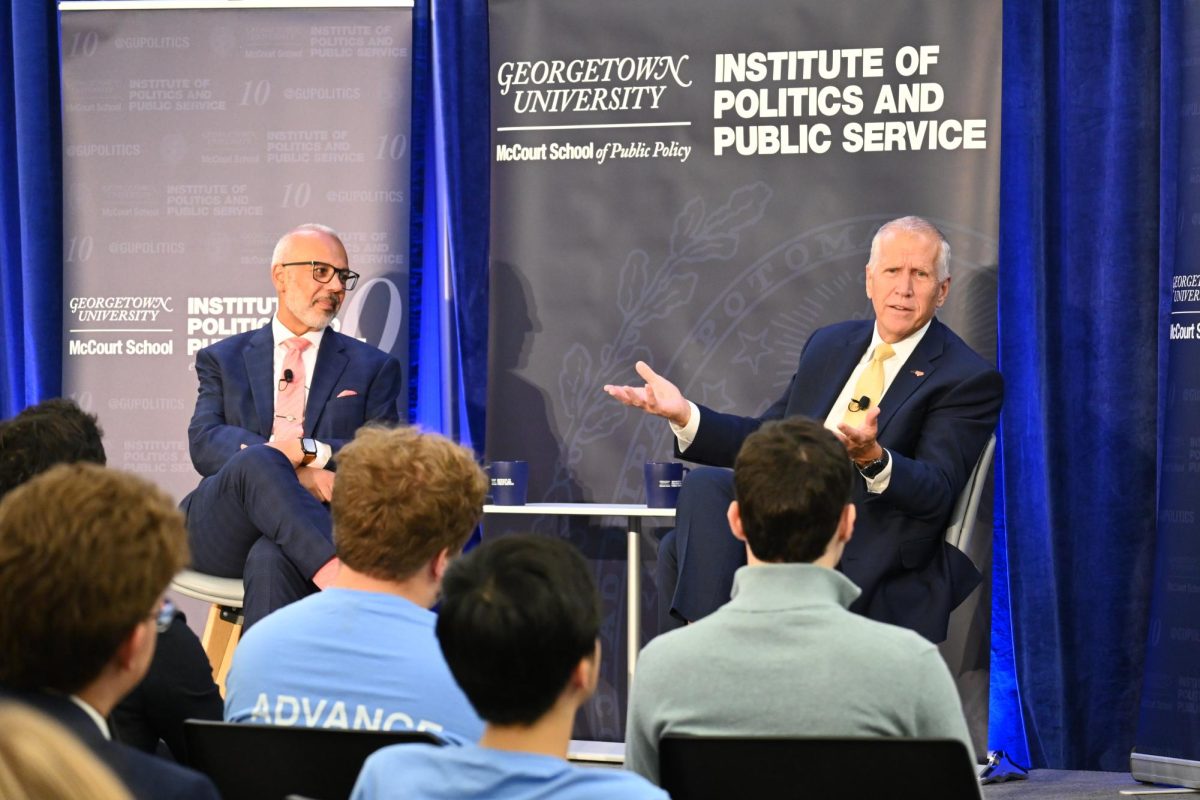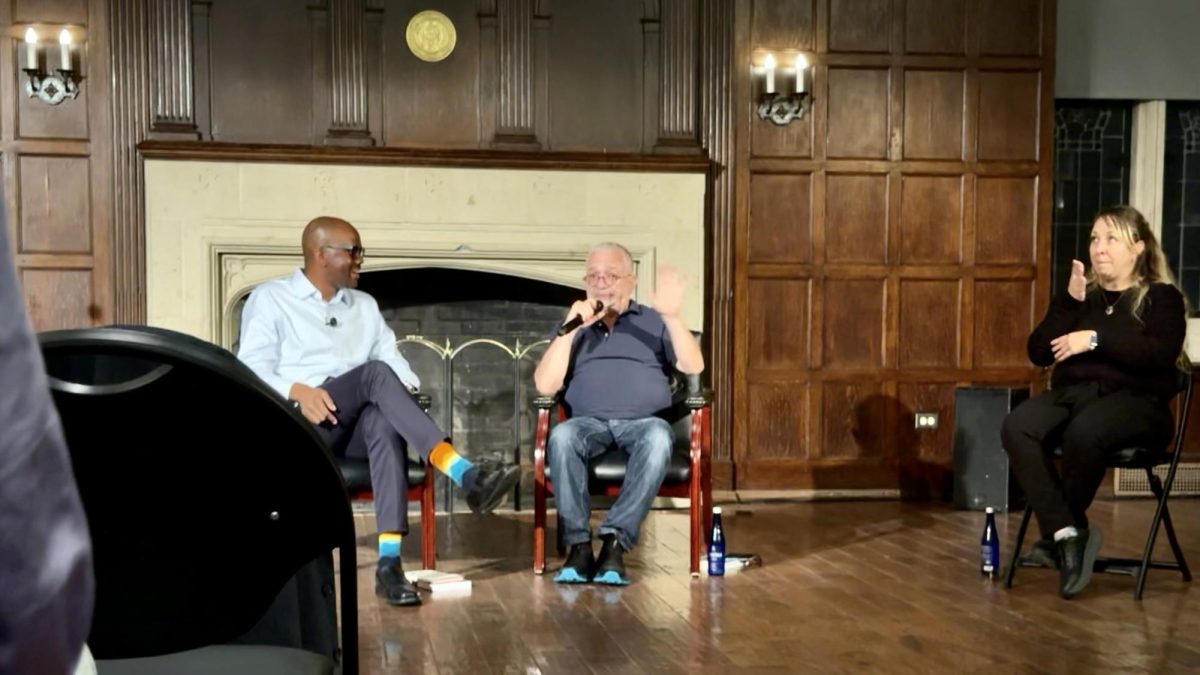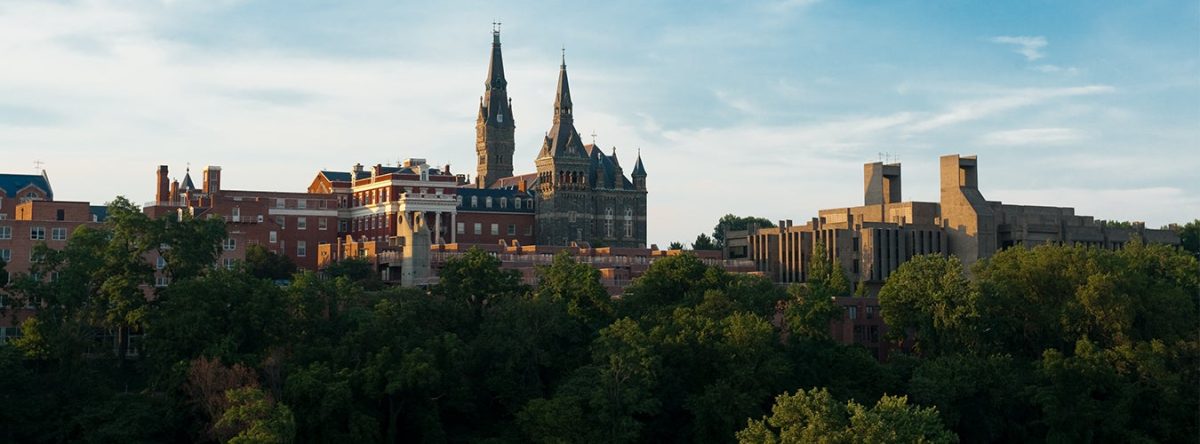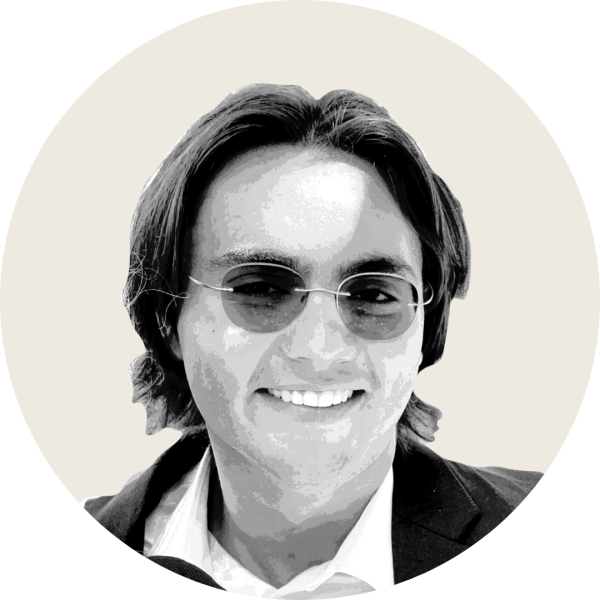Academics and social care experts outlined how social environments, politics and global issues affect mental health during a virtual panel event Jan. 22.
Titled “Minding the World’s Mental Health,” the panel touched on systemic challenges to mental health worldwide, including economic disparity, health inequity, public policy failures, climate change and other social issues. The panel was this year’s first installment of the “Free Speech at the Crossroads: International Dialogues” series, co-sponsored by the Free Speech Project, which aims to foster dialogue and civic engagement, and the Future of the Humanities Project, a collaboration between Georgetown and the University of Oxford that examines the intersection of humanities and public life.
Panelists included Pippa Hockton, the founder of Street Talk, a nonprofit providing psychotherapy to women in street prostitution and human trafficking victims; Karen D. Lincoln, the director of the Center for Environmental Health Disparities Research in the Program in Public Health at the University of California, Irvine; and Mario Kreft, the founder of Pendine Park, which operates eight care homes in North Wales.

Lincoln said the United States is unprepared to handle increasing mental health challenges in the face of compounding social issues.
“What we’re seeing in the United States is that we are talking about groups of people — populations — that have been made vulnerable by a host of political, economic and social factors, and environmental factors, who have already suffered from not having access to mental health treatment and care,” Lincoln said during the event.
Hockton said experts and policymakers should consider the root causes of mental health in order to properly address it, pointing to trauma research as an example.
“I think my one wish would be to stop looking at mental health from how you treat it but look at it from how you prevent it,” Hockton said during the event.
“We do have much more awareness of the impact of trauma and how a lot of mental illness is driven by trauma — we have much more understanding of that than we did 40 years ago — but we’re not doing anything to prevent the trauma,” Hockton added.
Lincoln said recent moves by the administration of President Donald Trump to withdraw from the World Health Organization would make it more difficult to prepare for global issues that could affect mental health.
“If, when the World Health Organization identifies these issues, we start to look at them, we can either relate to them or we are alerted that these are issues that we need to be prepared to address if we’re not already addressing them,” Lincoln said. “So I’m very concerned about the conversations around pulling out of the World Health Organization.”
Kreft said the lack of adequate mental health policy stems from politicians who are disconnected from their constituencies, necessitating a transformation in how societies approach politics and mental health.
“I think we will work through it, I think the species will survive long enough to enable us to evolve into other ways and hopefully more happy, more well areas in our mental health, and our general health and well-being can be improved right across the globe,” Kreft said. “But until that happens, I’m very pessimistic about our political class, who don’t seem to listen, and if they care, they certainly don’t care enough.”
Lincoln’s research focuses on how health disparities affect Black people in the United States and older adults. She said that while the climate change-induced wildfires in Los Angeles disproportionately impact marginalized communities, she is hopeful that young people will address the climate crisis and other root causes of the mental health crisis.
“Generations of people are suffering as a result of these wildfires, but there’s hope, and I find hope in the little things that I see in communities every day, and I have the honor of being in classrooms with students who are amazing,” Lincoln said. “We are in good hands and I’m so blessed to interact with these students — who are incredibly diverse, coming from across the United States and other countries, who are committed to social justice, who are concerned about the environment.”








